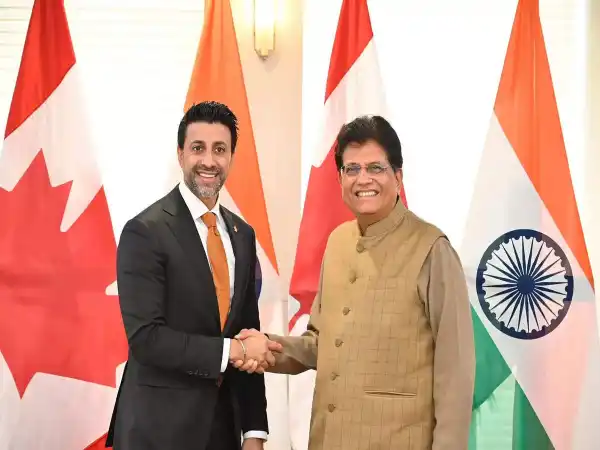India and Canada announced fresh long-term collaborations on Friday, focusing on critical minerals, clean energy and new trade avenues in the aerospace sector. The move signals a thaw in relations that had been strained during Justin Trudeau’s tenure.

High-Level Talks in New Delhi
The agreements came after the 7th Ministerial Dialogue on Trade and Investment (MDTI) held in New Delhi from November 11 to 14. Canada’s Minister of Export Promotion, International Trade and Economic Development Maninder Sidhu visited India at the invitation of Commerce and Industry Minister Piyush Goyal.
This round of talks followed directions set by both Prime Ministers during their meeting on the sidelines of the G7 in Kananaskis, as well as the joint foreign ministers’ statement of October 13, which positioned trade as the foundation for future engagement.
Focus on Critical Minerals and Clean Energy
The two ministers identified new areas for cooperation, agreeing to build long-term supply chain partnerships in critical minerals and broaden collaboration in clean energy—both key for energy transition and industrial expansion. They also committed to exploring deeper engagement in aerospace and dual-use technologies, drawing on Canada’s established presence in India and the rapid growth of India’s aviation industry.
Trade and Investment Momentum
Both sides reaffirmed the continuity of their economic relationship. According to the joint statement, trade in goods and services between the two countries reached $23.66 billion in 2024. Merchandise trade alone grew 10 percent to nearly $8.98 billion.
They also noted the steady rise in two-way investments, with Canadian institutions maintaining significant exposure in India, and Indian companies expanding their presence in Canada.
Building Stronger, Resilient Supply Chains
Goyal and Sidhu discussed ongoing global supply chain disruptions and emphasised the need for greater resilience in strategic areas, including agriculture. They stressed the importance of diversified and reliable supply chains to support long-term stability.
Commitment to Moving Forward
Both ministers expressed satisfaction with the progress made and agreed on the need for a predictable investment environment. They highlighted that people-to-people ties continue to anchor the broader partnership and will play a key role as both countries move toward deeper economic cooperation.
